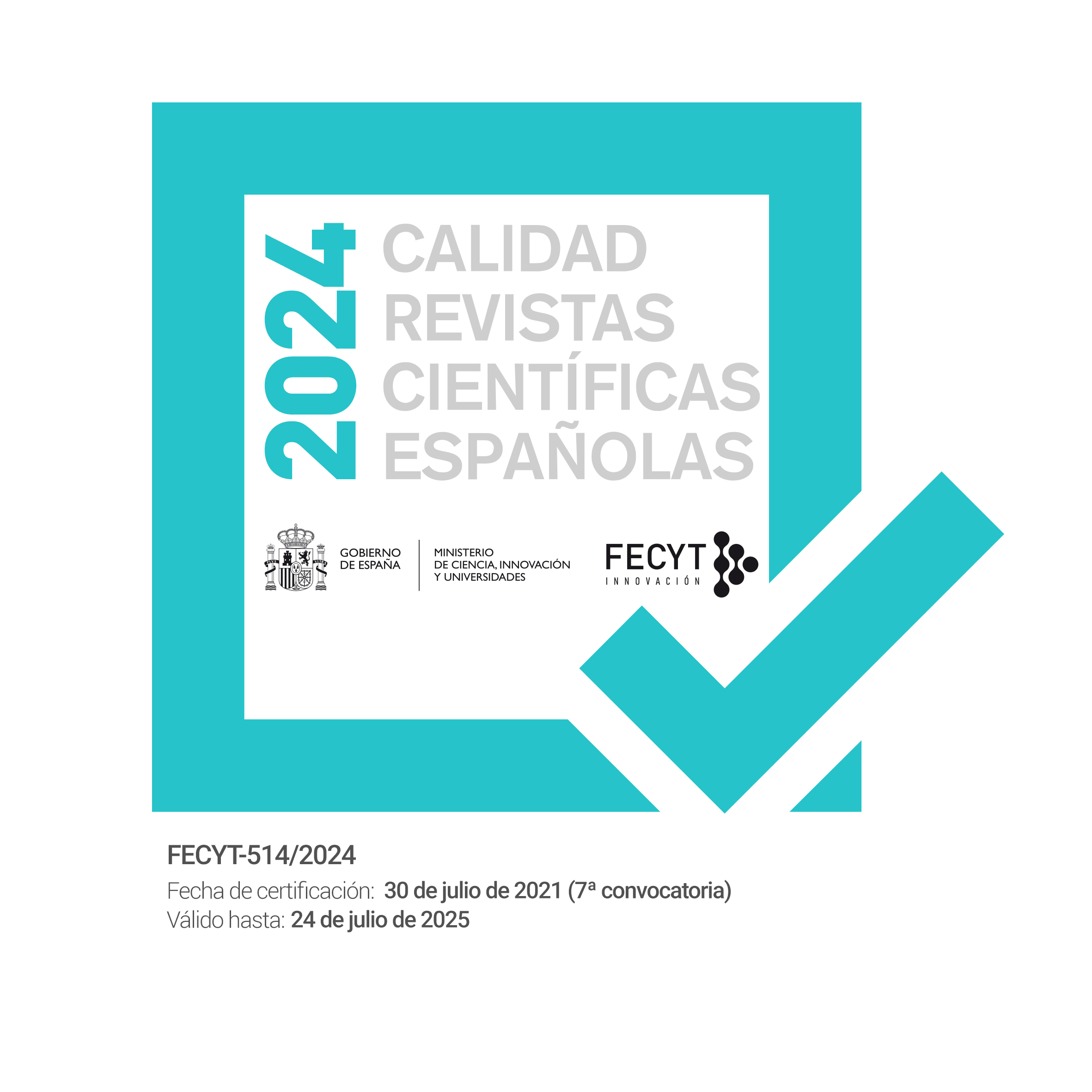'Fragmented and bewildering:' The new risk society in Jenny Offill's Weather
DOI:
https://doi.org/10.12795/REN.2022.i26.11Keywords:
Fourth Industrial Revolution, fragmentation, Jenny Offill, posthumanism, resilience, risk society, transhumanismAbstract
US author Jenny Offill’s Weather (2020) shows her idiosyncratic take on the notion of risk society. In the novel and its accompanying website, Offill develops a type of anxious fragmentation as an answer to the challenges of the Fourth Industrial Revolution. A multiple text characterized by compulsive quotation and the formal influence of digital media, Weather is held together by a first-person confessional voice. Eventually, Offill manages to achieve a sense of interconnection through an aesthetics of the fragment thanks to a double movement: she favors a critical posthumanist perspective that understands the interrelational subject as constituted by interaction with multiple others, and she explicitly calls for collective action. Therefore, I conclude that Weather represents Offill’s both aesthetic and political quest, as she distinctly aspires to elicit an answer from readers in the form of social activism.
Downloads
References
AHAMED, Sarah et al. “Transhumanism in India: Past, Present and the Future.” The Transhumanism Handbook, edited by Newton Lee, Springer, 2019, pp. 701-14.
BRACKE, Sarah. “Bouncing Back: Vulnerability and Resistance in Times of Resilience.” Vulnerability in Resistance, edited by Judith Butler et al., Duke UP, 2016, pp. 52-75.
BRAIDOTTI, Rosi. Nomadic Theory: The Portable Rosi Braidotti. Columbia UP, 2011.
---. The Posthuman. Polity, 2013.
BROADBENT, Stefana, and Claire Lobet-Maris. “Towards a Grey Ecology.” The Onlife Manifesto, edited by Luciano Floridi, Springer, 2015, pp. 111-24.
BURTON, Sarah, and Benjamin Bowman. “The Academic Precariat: Understanding Life and Labour in the Neoliberal Academy.” British Journal of Sociology of Education, vol. 43, nº 4, 2022, pp. 497-512.
BUTLER, Judith. Giving an Account of Oneself. Fordham UP, 2005.
CARRERA, Pilar. La lógica del fragmento. Pre-Textos, 2022.
CHILDS, Peter. Modernism. Routledge, 2000.
COOK, John. The Posthuman Curriculum and the Teacher. PhD dissertation, Georgia Southern University, Electronic Theses and Dissertations, nº 1430, 2016, https://digitalcommons.georgiasouthern.edu/etd/1430 Accessed 27 July 2022.
CUNNINGHAM, Guy Patrick. “Fragmentary: Writing in a Digital Age.” The Millions, 24 Nov. 2012. https://themillions.com/2012/01/fragmentary-writing-in-a-digital-age.html. Accessed 22 November 2022.
DONALDSON, Emily. “There’s a Storm Coming: Jenny Offill’s New Novel Touches a Nerve.” The Globe and Mail, 24 Feb. 2020, https://www.theglobeandmail.com/arts/books/reviews/article-theres-a-storm-coming-jenny-offills-new-novel-touches-a-nerve/ Accessed 21 July 2022.
FRIES, Cristina. “The Philosophical Novel Couched in a Tale of Marriage: Q&A with Jenny Offill.” Zyzzyva, 10 Nov. 2014, https://www.zyzzyva.org/2014/11/10/the-philosophical-novel-couched-in-a-tale-of-marriage-qa-with-jenny-offill/ Accessed 27 July 2022.
GIOIA, Ted. “The Rise of the Fragmented Novel (An Essay in 26 Fragments).” Modern Literature, 4 Nov. 2017, https://www.modernliterature.org/rise-fragmented-novel-essay-26-fragments-by-ted-gioia/ Accessed 19 July 2022.
GUIGNERY, Vanessa, and Wojciech Drag (eds.). The Poetics of Fragmentation in Contemporary British and American Fiction. Vernon, 2019.
HARAWAY, Donna. Staying with the Trouble. Duke UP, 2016.
---. The Companion Species Manifesto. Prickly Paradigm Press, 2003.
JENKINS, Henry. “Transmedia Storytelling: Moving Characters from Books to Films to Video Games Can Make Them Stronger and More Compelling.” MIT Technology Review, 15 Jan. 2003, https://www.technologyreview.com/2003/01/15/234540/transmedia-storytelling/ Accessed 26 July 2022.
JOHANNESSEN, Jon-Arild. The Workplace of the Future. Routledge, 2019.
MANES, Christopher. Green Rage. Little, Brown and Company, 1990.
MARS-JONES, Adam. “obligatorynoteofhope.com.” London Review of Books, vol. 42, nº 13, 2 July 2020, https://www.lrb.co.uk/the-paper/v42/n13/adam-mars-jones/obligatorynoteofhope.com Accessed 22 November 2022.
NAYAR, Pramod K. Posthumanism. Polity, 2014.
NEOCLEOUS, Mark. “Resisting Resilience.” Radical Philosophy, vol. 178, March/April, 2013, pp. 2-7.
“OBLIGATORY NOTE OF HOPE.” https://www.obligatorynoteofhope.com/ Accessed 22 November 2022.
OFFILL, Jenny. Weather. Vintage, 2020.
ONEGA, Susana, and Jean-Michel Ganteau. “Introduction: Transcending the Postmodern.” Transcending the Postmodern, edited by Susana Onega and Jean-Michel Ganteau, Routledge, 2020, pp. 1-19.
REYES, Victoria. Academic Outsider. Stanford UP, 2022.
RODRÍGUEZ MAGDA, Rosa María. “The Crossroads of Transmodernity.” Translated by Jessica Aliaga-Lavrijsen. Transmodern Perspectives on Contemporary Literatures in English, edited by Jessica Aliaga-Lavrijsen and José María Yebra-Pertusa, Routledge, 2019, pp. 21–29.
SCHWAB, Klaus. The Fourth Industrial Revolution. World Economic Forum, 2016.
STANDING, Guy. The Precariat. Bloomsbury, 2011.
SUDJIC, Olivia. “Page Refresh: How the Internet Is Transforming the Novel.” The Guardian, 23 Jan. 2021. https://www.theguardian.com/books/2021/jan/23/page-refresh-how-the-internet-is-transforming-the-novel. Accessed 19 July 2022.
THOMAS-CORR, Johanna. “How to Be Good in a World Gone Bad.” New Statesman, 31 Jan.-6 Feb. 2020, pp. 48-49.















